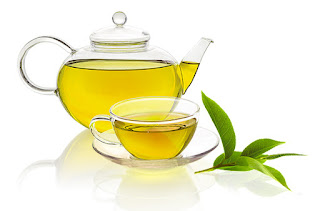High blood pressure (hypertension) is a dangerous condition that can lead= to stroke, enlarged heart, congestive heart failure, kidney and eye damage, atherosclerosis hardening of the arteries, and premature death.
According to a recent report released in The New England Journal of Medicine of 16,000 adults surveyed over the age of 24, nearly 30 percent had blood pressure of at least 140/90 and more than one-third of them were unaware of their condition.
Blood pressure refers to the force of the bloodstream against the walls of the arteries as they deliver blood from the heart to the rest of the body. Normal, healthy blood pressure ranges from about 110/80 to as high as 140/90. The higher number refers to systolic pressure, which is the hearts contractions. The second number, the diastolic pressure, measures the rests between heartbeats. Here are the categories to consider when evaluating blood pressure:
Normal - Less than 140/90
Borderline - 141/91 to 159/94
High - 160/95 or more
What Causes High Blood Pressure?Although there are still questions about the roots of essential hypertension, many researchers name two culprits: The typical American diet and lifestyle factors. Following are 9 major factors that can contribute to this potentially deadly condition:
1. High-fat, high-sodium diet . . . Interestingly, vegetarians who normally eat a low-fat, low-sodium diet have a profoundly lower incidence of hypertension than non-vegetarians.
2. Fat imbalance . . . Too much saturated fat in the diet. We need more essential fatty acids to help clear the system of fat solids.
3. Nutritional deficiencies . . . People whose diets are low in potassium, magnesium, calcium and vitamin C are at greater risk of hypertension.
4. Obesity (read
6 Proven Fast Weight Loss Tips )
. . . High blood pressure is almost six times more common among overweight people ages 20 to 44, and twice as common in those 45 to 74
5.
Smoking . . . Chronic smoking decreases blood flow to the brain, increasing the risk of stroke.
6. Alcohol . . . Heavy drinking is another indicator of high blood pressure.
7. Stress . . . In many instances, stress can be the major factor causing high blood pressure.
8. Atherosclerosis . . . A buildup of fatty deposits can narrow the blood vessels, leading to a rise in blood pressure. The increased resistance means the heart has to work harder to pump blood through the body, placing it under strain.
9. High sugar intake . . . People who had more sugar in their diet had markedly increased blood pressure.
Anti-Hypertensive Diet GuidelinesThe following recommendations can help you keep your blood pressure at healthier levels:
Follow a low-fat diet.
Increase your intake of potassium, magnesium and calcium.
Reduce your intake of salt.
Restrict your consumption of refined sugars.
Exercise more often. Since excess body fat is a primary risk factor in hypertension, it is critical to maintain a healthy weight. The importance of regular exercise cannot be over-emphasized.
Essential Nutrient IntakeWhat you eat has a powerful influence on your blood pressure as well as almost every other aspect of your health.
For most people, the sodium/potassium ratio is more significant than sodium alone. We should be consuming about five times more potassium than sodium (5:1), but the typical American diet includes half as much potassiumas sodium (1:2).
By eating more POTASSIUM-rich foods, you can reverse the ratio and promote healthy blood pressure. Foods such as bananas, oranges, tangerines, beans, dried peas, and potatoes provide a wealth of natural potassium.
MAGNESIUM is another vital nutrient for blood pressure. It is believed that magnesium activates the bodys cellular membrane pump, which pumps sodium out and potassium into the cells. Some clinical trials have shown that magnesium supplementation reduces blood pressure. Magnesium- rich foods include nuts (especially almonds, cashews, and pecans), rice, bananas, potatoes, wheat germ, kidney and lima beans, peas, soy products, molasses, oat, bran, and fish.
CALCIUM is important. People with high blood pressure are advised to increase Calcium intake and to eat more calcium-rich foods such as nuts, salmon, sardines, low-fat dairy foods, watercress, kale, broccoli, turnip greens, collard greens, and mustard greens.
Here is a list of other nutritional supplements that can help prevent
high blood pressure:
HAWTHORNE is an herb that has been shown to widen blood vessels, especially the coronary arteries.
CAYENNE reduces the risk of atherosclerosis, which can lead to hypertension.
VALERIAN has sedative activity, which has a beneficial effect on blood pressure.
VITAMIN C supplementation has exerted a valuable blood-pressure-lowering effect in people by promoting the excretion of lead, which is linked to hypertension.
COQ10 shows promise for hypertensives. Coenzyme Q10 is a nutrient that naturally occurs in our bodies and can be supplemented to assure adequate daily intake.
GARLIC helps reduce cholesterol as well as blood pressure.
Summary . . . The consequences of untreated high blood pressure are too serious to go untreated. By making smart choices about the foods you eat, the intake of beneficial nutritional factors and your exercise regimen, you can help control your own blood pressure.
By Roger Jirves
Also Read
Relationship between High blood Pressure and Erectile Dysfunction







